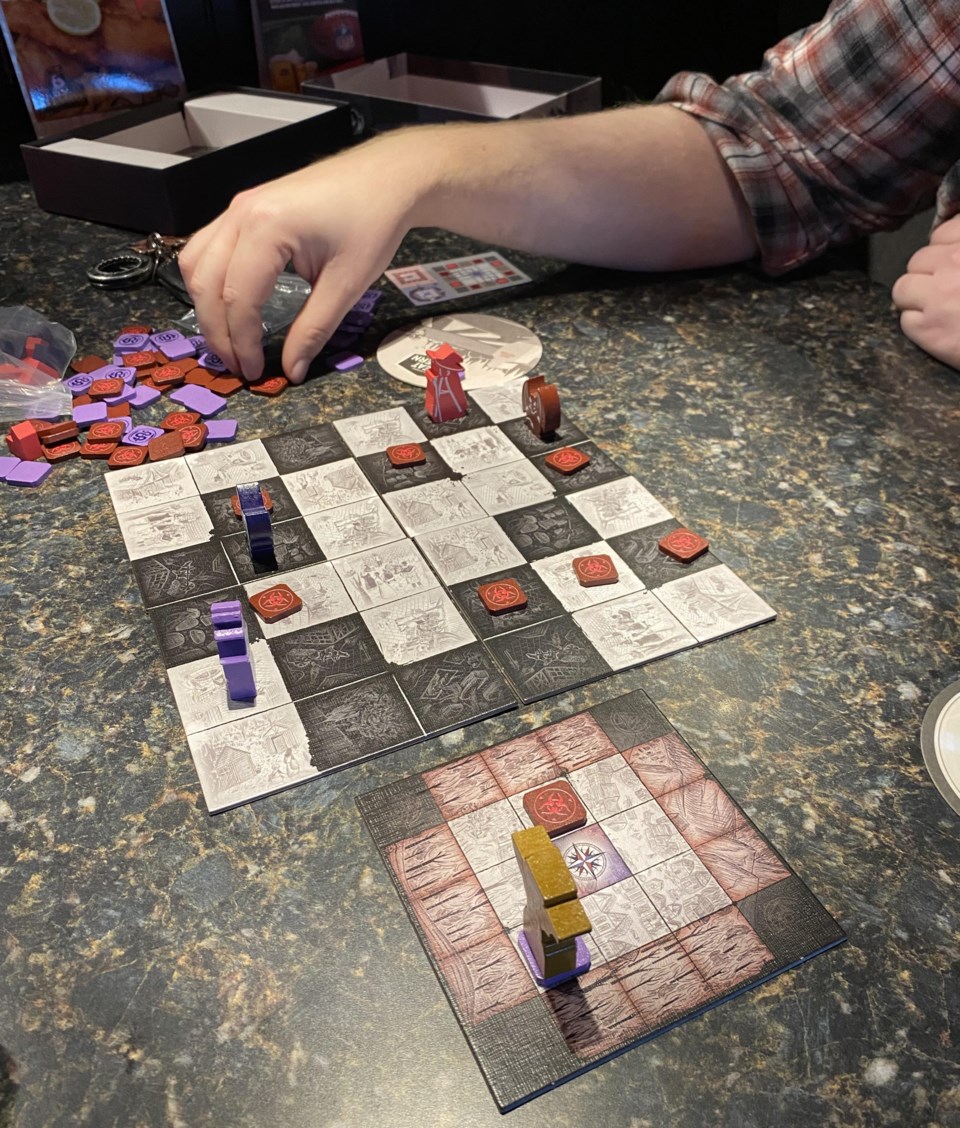YORKTON - Sometimes a game you might term obscure crosses the table and absolutely wows The Meeple Guild.
Pathogen by Kuan Chen and from Kolor Deep Studio is just such a game.
This is a perfect information abstract strategy game so it was sort of in my personal wheelhouse, but Pathogen won fans in the Guild.
Adam made the comment the game impressed him as an abstract strategy game because it didn’t ‘feel’ like he was playing an abstract strategy game.
Designer Kuan Chen said he was hoping to create something with a different flavour.
“I hope to make games with innovative mechanics, and also think it's nice if abstract games can have immersive themes,” he explained via email.
“In Pathogen, players play as Doctor and Plague, controlling their pawns to spread the plague or to heal them. The board consists of black and white squares which represents two worlds, you'll fight intense battles in two worlds at once. Out think your opponent to save or destroy the worlds!
“The mechanics came first, then there w asthe COVID outbreak, which inspired me to make the game asymmetric, also I adjusted some rules to fit the theme.”
The reason he likely got that vibe is simply because this is a very different game, which ticks off a lot of positive things that are always good, then veers off into some very fresh places too.
So the positives you might see elsewhere include having a modular board allowing for a varied play area game-to-game.
Next Pathogen has two victory conditions chaining your pieces to connect opposite sides of the board, or to populate each of the four quadrants with a ‘village’. The twin paths to a win really forces players to keep their attention split to distinct ways they, or the opponent might manage a win.
Now we overlay that this is an asymmetric game. Each player has slightly different in-game abilities, while still looking to achieve the same win condition.
A player has two pieces, one moving in the ‘shadows’ (black squares), and the other in the ‘light’ (white squares). When moving either you ignore the opposite colour squares completely.
The two rule sets for players are different enough to really feel unique.
Then the really fresh aspect of the game is that piece movement is sort of ‘programmed’ on a separate board, which really makes it fun.
The programming aspect, and dealing with ignoring certain colour squares is a mind twister.
“The best part is the asymmetric powers, it makes the Plague very powerful in the early game, but as the time goes, the Doctor will become stronger and stronger,” offered Chen. “I love how the powers create the shift in different game stage, also make the game intense from the beginning. The moving mechanism and the two-colour board are the parts I'm most proud of, they together create layers of strategy.
“Players have to plan their route on the panel before moving, what they do may also limit opponent's movement on the next turn.
“Also, the black and white squares don't affect each other, so players have to decide which pawn to move on each turn, in order to build the connection crossing the board.
The pattern of the board makes some squares hard to get in but crucial, controlling those spots may lead you to victory.
“Last but not least, the board is modular, the configuration greatly impacts how the game is played, providing tons of replayability.”
The designer has created a rather excellent game that certainly is different from most abstract strategy games.
It all adds up to easily the best abstract strategy game reviewed this year – and maybe in the last several years.
You can find the game via Facebook under Kolor Deep Studio.






